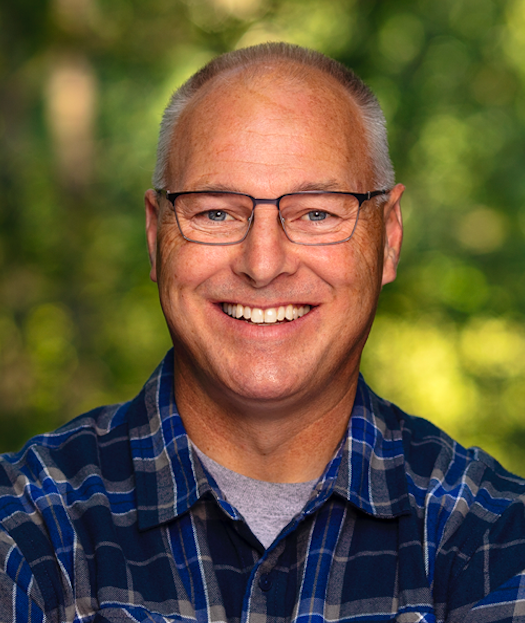October 24, 2024 at 1:20 p.m.
US Congressional District 8 Voters Guide

PETE STAUBER
QUESTION #1
This upcoming Congressional ballot could seat either lawmakers who want to address violent weather, severe wildfires and losses of private and public property through federal measures to combat climate-impacting practices— or lawmakers will be elected who don’t accept there’s anything man can do about the climate. Which side of this issue best describes you?
Rather than rely on adversaries who have no regard for the environment, we must bring our manufacturing jobs back home to our own country. I’m focused on making America an energy dominant and critical mineral powerhouse. This will secure our economic future, reduce our dependence on foreign adversaries, and strengthen our national security. By putting America first, we will restore the heartbeat of our economic future where American workers and industries again take the lead on the global stage.
QUESTION #2
What are the odds of getting full funding for federal special education mandates? This has been an ongoing concern in local school district budgeting for years yet never seems to become a priority.
As a father whose son has Down Syndrome, this issue is near to my heart. While I’m a big advocate of local government control when it comes to education – which means empowering local school boards and parents to have a say in their local schools – one promise the federal government made decades ago was to fully fund special education. Whenever I talk to superintendents in the 8th congressional district, they express to me how important it would be to schools if Congress would fulfill that obligation. I continue to work in a bipartisan way to fully fund special education an provide our schools with the flexibility they need.
QUESTION #3
Chisago County is a leader in solar energy production with acreage of arrays topping other county totals across the state. Rep Stauber has expressed opposition to the tax credit program that facilitated the explosion in solar production, wanting ag land to be declared ineligible for the renewable tax credit for both solar and wind. Talk about the wisdom behind this idea.
As energy demand in the U.S. is set to increase for the next several decades, I have always strongly supported an all-the-above energy strategy, which includes wind, solar, and traditional forms of energy. As we bring solar power generation online, evaluating and considering the impact of large-scale projects, particularly the massive acreage that solar farms require, is important. It is critical that these installations do not come at the expense of other important industries, including agriculture. The agricultural sector in Chisago County is incredibly important to our local economy. Farmers in Chisago County sold nearly $55 million in crops, livestock, and other agricultural products in 2022. I have serious concerns about the unintended consequences of heavily subsidizing an industry without guardrails that would protect farmers from skyrocketing overhead and operating costs and consumers from even higher costs at the grocery store.

JEN SCHULTZ
QUESTION #1
This upcoming Congressional ballot could seat either lawmakers who want to address violent weather, severe wildfires and losses of private and public property through federal measures to combat climate-impacting practices— or lawmakers will be elected who don’t accept there’s anything man can do about the climate. Which side of this issue best describes you?
Global climate change is affecting every part of the world, including Minnesota. In the last several years, Minnesota has dealt with significant drought, massive forest fires and damaging floods. The science is clear: these issues will get worse unless we take urgent action. I see an amazing opportunity for Minnesota to be at the forefront of addressing climate change. We can be a global leader in environmental technology. There’s no reason for the U.S. to continue to subsidize oil and gas companies to the tune of over $20 billion annually, especially when they’ve raised the price at the pump dramatically while enjoying record profits. We should direct that money toward building dependable green infrastructure that reduces our reliance on volatile, autocratic regimes. Our region is uniquely positioned to take advantage of a shift to green energy. Our highly skilled and experienced workforce would welcome an influx of stable, union jobs created through building and maintaining sustainable alternative energy infrastructure.
QUESTION #2
What are the odds of getting full funding for federal special education mandates? This has been an ongoing concern in local school district budgeting for years yet never seems to become a priority.
Our nation’s future relies on our public education system. I support increasing federal funding to our local schools, especially full funding to meet special education requirements. Our teachers need to have resources and supplies for their classrooms, smaller class sizes, and sufficient wages so that they can best support and teach our children. Property value should not determine whether children have access to quality education. We need safe-school policies, onsite social workers and counselors, robust Pre-K programs and special education, and programs for at-risk or vulnerable students at every school across the district. Increasing federal funds for public schools should reduce the growth of property tax rates.
QUESTION #3
Chisago County is a leader in solar energy production with acreage of arrays topping other county totals across the state. Rep. Stauber has expressed opposition to the tax credit program that facilitated the explosion in solar production, wanting ag land to be declared ineligible for the renewable tax credit for both solar and wind. Talk about the wisdom behind this idea.
I support an all-of-the-above approach for addressing our energy needs, including renewable energy. We should be investing in technology that will lower energy costs for working families. Tax credits help facilitate greater use of solar and wind. Where solar and wind are located should be a community discussion, however. The state of Minnesota regulates large solar arrays so these issues should be discussed with state legislators. As solar and wind become more cost-effective than fossil fuels future tax credits may be phased out. Stauber’s campaign is funded by fossil fuel special interests so it is not surprising that he is opposed to tax credits for solar and wind.



Comments:
Commenting has been disabled for this item.